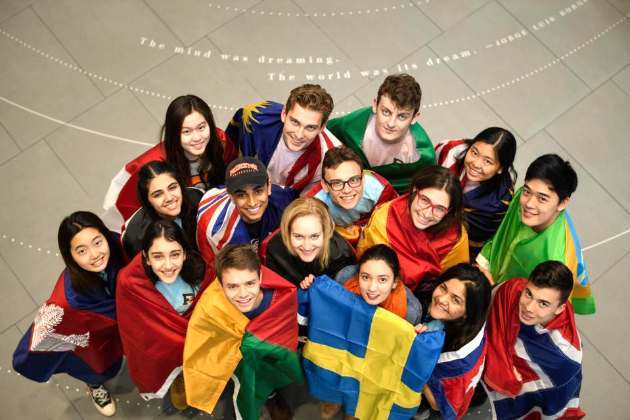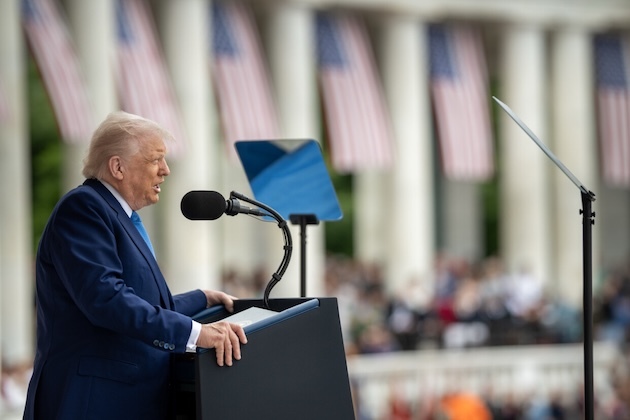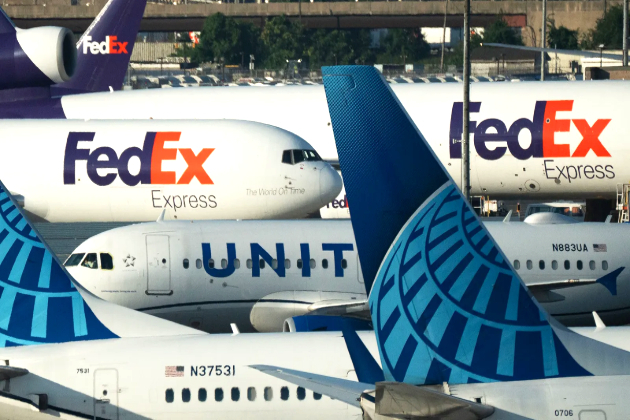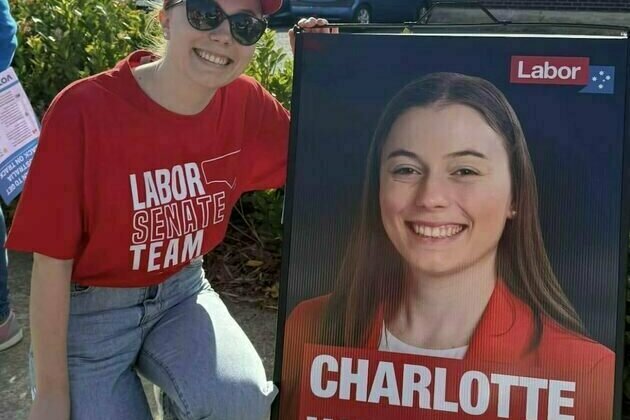Nobel laureate Brian Schmidt is 'scared' about Australia's research capacity - this is why
The Conversation
28 May 2025, 07:17 GMT+10
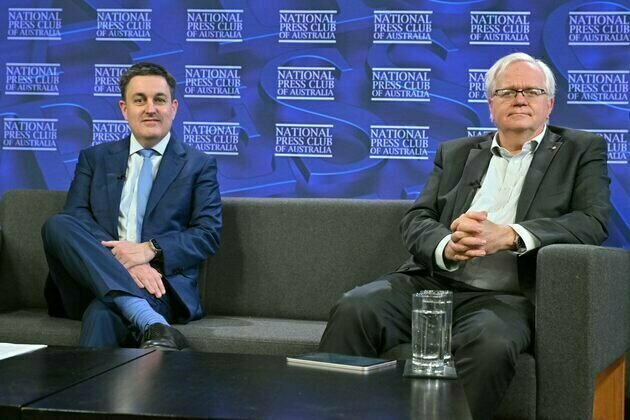
On Wednesday, Nobel laureate Brian Schmidt and economics professor Richard Holden gave a joint address to the National Press Club in Canberra. Their key message? Australia isn't spending enough money on university research.
Schmidt wants to ensure Australia can undertake research vital to our national interests.
"I look around and I am scared," Schmidt said. "The Australian government investment in its sovereign research capability was 50% higher 15 years ago as a fraction of GDP."
In his remarks, Holden warned, "we've become addicted to funding [...] research capability through international student income".
If this sounds familiar, both Schmidt and Holden have made similar calls before. And their press club presentation follows constant and repeated repeated calls from the university sector for more funds.
How much is Australia spending on research and how does this compare to other countries?
When we look around the world, Australia is lagging when it comes to research spending. Australia spends roughly 1.7% of its Gross Domestic Product (GDP) on all forms of research and development.
Our research expenditure has also decreased every year since 2008, according to the Australian Academy of Science.
Meanwhile, based on World Bank data, the United States spends about 3.59% of their GDP on research. China might only spend 2.56% of its GDP, but that's 2.56% of around US$18.7 trillion (A$29 trillion) - meaning China spends about US$500 billion ($778 billion) on research annually.
The OECD average (across 38 member countries) is 2.7%, a full percentage point higher than Australia. We're also underspending compared to other nations smaller than us, including:
- Finland has a population roughly one-fifth of Australia and spends 2.96% of its GDP on research
- Sweden has a population of about 10 million and spends 3.41%.
Australia's top research universities (the Group of Eight), argue Australia needs to work towards a target of 3% GDP to "underwrite national prosperity".
Australia's university research funding also lacks stability.
Government only funds part of university research - so universities have to come up with the rest. This adds a layer of vulnerability to our research system.
One of the key sources of university-generated funding is international student fees.
This means if there are cuts to overseas students - as we saw during COVID and as we see now due to federal government policy changes - there is a flow-on impact on research funding.
Universities have been asking for more money for years and these requests have been ignored by both sides of politics.
But while the requests may not change, the global security context is shifting. As Schmidt told the press club,
We can expect new technologies based around small-scale automated machines, hypersonic missiles and computer warfare to feature prominently if we are to have future conflicts between advanced economies.
In such a case the research capability of a country will be incredibly important at influencing the overall winners and losers, because once the conflict starts, you 'have what you got'.
If we don't properly fund universities to do cutting-edge research, such as quantum science, robotics and cybersecurity, researchers will go elsewhere to do their work. And some funders might not have Australian interests at heart.
China, Russia and the European Union have leapt on US President Donald Trump's recent decisions to defund or halt research programs, creating funds worth billions of dollars to woo scientists and scholars from the US to their own countries.
The Albanese government has commissioned a strategic review of Australia's research and development sector (led by Tesla chair Robyn Denholm), which is due to report by the end of the year. Part of its remit is to look at "mechanisms to improve coordination and impact of [research and development] funding and programs [...]."
In an ideal world, this will prompt the federal government up its funding of research, to match other countries. But previous unheard calls suggests this is unlikely.
But we can also be more creative. Perhaps industry can fill the gap with an Australian "Silicon Valley" where emerging industries can be clustered with universities in research partnerships. This is what some authors have called "innovation precincts".
We could also look at prioritising industry-based PhDs, so postdoctoral students have a research job when they graduate. Or we could consider reallocating government funds going to other sources, such as defence, on topics of military or intelligence importance.
This could see university funding pools become broader and deeper, more diversified and better suited to our national interests.
 Share
Share
 Tweet
Tweet
 Share
Share
 Flip
Flip
 Email
Email
Watch latest videos
Subscribe and Follow
Get a daily dose of Australian Herald news through our daily email, its complimentary and keeps you fully up to date with world and business news as well.
News RELEASES
Publish news of your business, community or sports group, personnel appointments, major event and more by submitting a news release to Australian Herald.
More InformationInternational
SectionBodies of 5 missing skiers recovered on mountain in Switzerland
ZERMATT, Switzerland: Five skiers were found dead on a mountain in Switzerland near the popular ski resort of Zermatt, officials said...
Canadians turn out in thousands to pay tribute to Israel
TORONTO, Canada - Tens of thousands of people from across Canada have marched in support of Israel in a massive turnout in Toronto....
Foreign students at Harvard bear the brunt of White House ban
BOSTON, Massachusetts: U.S. President Donald Trump's administration has taken away Harvard University's right to enroll international...
God responsible for his presidency, claims Trump
WASHINGTON, DC - U.S. President Donald Trump on Monday said he believed God was behind his election loss in 2020, even though he has...
Passenger traffic plummets at Newark Airport amid travel disruptions
NEW YORK CITY, New York: Passenger numbers at Newark Liberty International Airport in New Jersey have dropped sharply, according to...
EU probes Visa, Mastercard fees amid antitrust scrutiny
BRUSSELS, Belgium: European Union antitrust regulators are examining fees imposed by payment giants Visa and Mastercard, Bloomberg...
Sydney
SectionRemembering kids that have vanished in Australia over many years
Leela found joy in dancing. Megan loved the freedom of ice skating. Ronya was always singing along to pop songs. Cherie's favourite...
Aussie firms upbeat on China outlook despite trade tensions
SYDNEY, Australia: Australian businesses are feeling optimistic about their prospects in China despite escalating global trade tensions,...
Police seize Sydney pharmacist's assets as part of fraud probe
SYDNEY, Australia - A pharmacist has been charged after allegedly defrauding the Pharmaceutical Benefits Scheme (PBS) of more than...
Alice Capsey, Lauren Filer added in England's ODI squad for their ODI series against West Indies
New Delhi, [India], May 28 (ANI):Key batter Heather Knight is in doubt for the series that commences in Derby on May 30 due to a hamstring...
Nobel laureate Brian Schmidt is 'scared' about Australia's research capacity - this is why
On Wednesday, Nobel laureate Brian Schmidt and economics professor Richard Holden gave a joint address to the National Press Club in...
Australia has elected its youngest senator. With Gen Z wielding more political power, is it a sign of things to come?
It's been 30 years since Natasha Stott Despoja became the youngest woman ever elected to the Australian Parliament. A 25-year-old Sarah...



